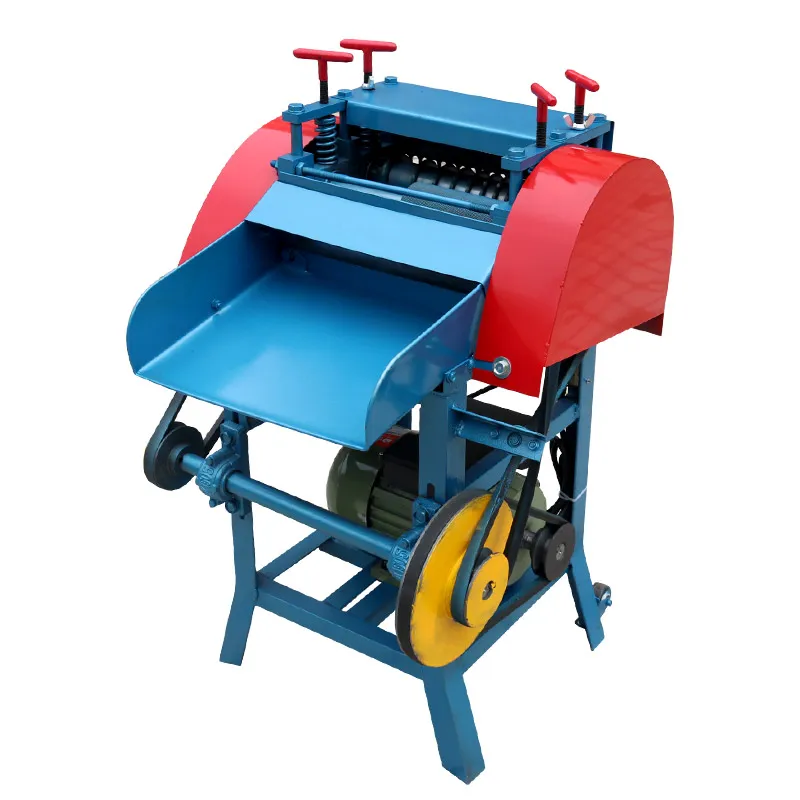

ធ្នូ . 04, 2024 18:23 Back to list
The Importance of Aluminum Can Recycling Plants
Aluminum recycling plays a crucial role in the sustainability and environmental preservation efforts of our modern society. Among the key players in this process are aluminum can recycling plants, which serve as vital hubs for collecting, processing, and reintroducing aluminum into the production cycle. This article explores the importance of aluminum can recycling plants, their operational processes, and the wide-ranging benefits they offer.
Aluminum is a highly versatile and widely used material, particularly in the beverage industry, where it is commonly found in cans for soda, juice, and beer. One of the most remarkable aspects of aluminum is its recyclability; in fact, aluminum can be recycled indefinitely without any loss of quality. This characteristic makes aluminum can recycling plants essential, as they help to reclaim this valuable resource and reduce the demand for virgin aluminum production.
The operational process of an aluminum can recycling plant begins with the collection of used aluminum cans. These cans can be gathered through various channels, including curbside recycling programs, recycling centers, and community drop-off locations. Once the cans are collected, they are transported to the recycling plant, where the first step involves cleaning and sorting. Contaminants such as labels, plastics, and other materials are removed to ensure that the aluminum is pure.
After cleaning, the aluminum cans undergo a shredding process, reducing them into smaller pieces, known as “fluff.” This fluff is then melted down in large furnaces, where it reaches temperatures of around 1,200 degrees Fahrenheit. The molten aluminum is poured into molds, creating ingots or billets, which can be transported to manufacturers for production into new products. The entire recycling process is highly efficient, requiring only about 5% of the energy needed to produce new aluminum from raw bauxite ore.

The benefits of aluminum can recycling plants are substantial. Environmentally, recycling aluminum saves energy, as the process of recycling requires significantly less power compared to producing aluminum from scratch. According to the Aluminum Association, recycling aluminum saves approximately 95% of the energy required to produce new aluminum, which translates into fewer greenhouse gas emissions and a reduced carbon footprint. This reduction is crucial in our fight against climate change and contributes to healthier ecosystems.
Economically, aluminum recycling plants create jobs and stimulate local economies. They often employ a range of individuals, from sorting line workers to engineers and administrative staff. Furthermore, the recycled aluminum produced by these plants can be sold at competitive prices, thus supporting the financial viability of recycling operations and promoting a circular economy. By converting waste into resources, aluminum recycling plants help minimize landfill waste while generating economic opportunities.
Socially, aluminum can recycling plants raise awareness about recycling and environmental stewardship. Many plants engage in educational outreach programs, teaching communities about the importance of recycling and how they can contribute. These initiatives inspire citizens to adopt sustainable practices, ensuring that recycling becomes a norm rather than an exception.
In conclusion, aluminum can recycling plants play an indispensable role in the larger framework of waste management and resource conservation. Through their processes, they not only conserve energy and reduce emissions but also foster economic growth and community engagement. As consumers, we can support these efforts by responsibly recycling our aluminum cans and advocating for better waste management practices. By doing so, we contribute to a cleaner, greener planet and help sustain the valuable resources our society depends on. As we move towards a more sustainable future, the importance of recycling facilities, particularly aluminum can recycling plants, cannot be overstated.
Latest news
Troubleshooting Common Eddy Separator Problems
NewsJul.04,2025
The Role of Metal Recycling Plants in Circular Economy
NewsJul.04,2025
The Impact of Recycling Line Pickers on Waste Management Costs
NewsJul.04,2025
Safety Features Every Metal Shredder Should Have
NewsJul.04,2025
How Industrial Shredders Improve Waste Management Systems
NewsJul.04,2025
How Cable Granulators Contribute to Sustainable Recycling
NewsJul.04,2025